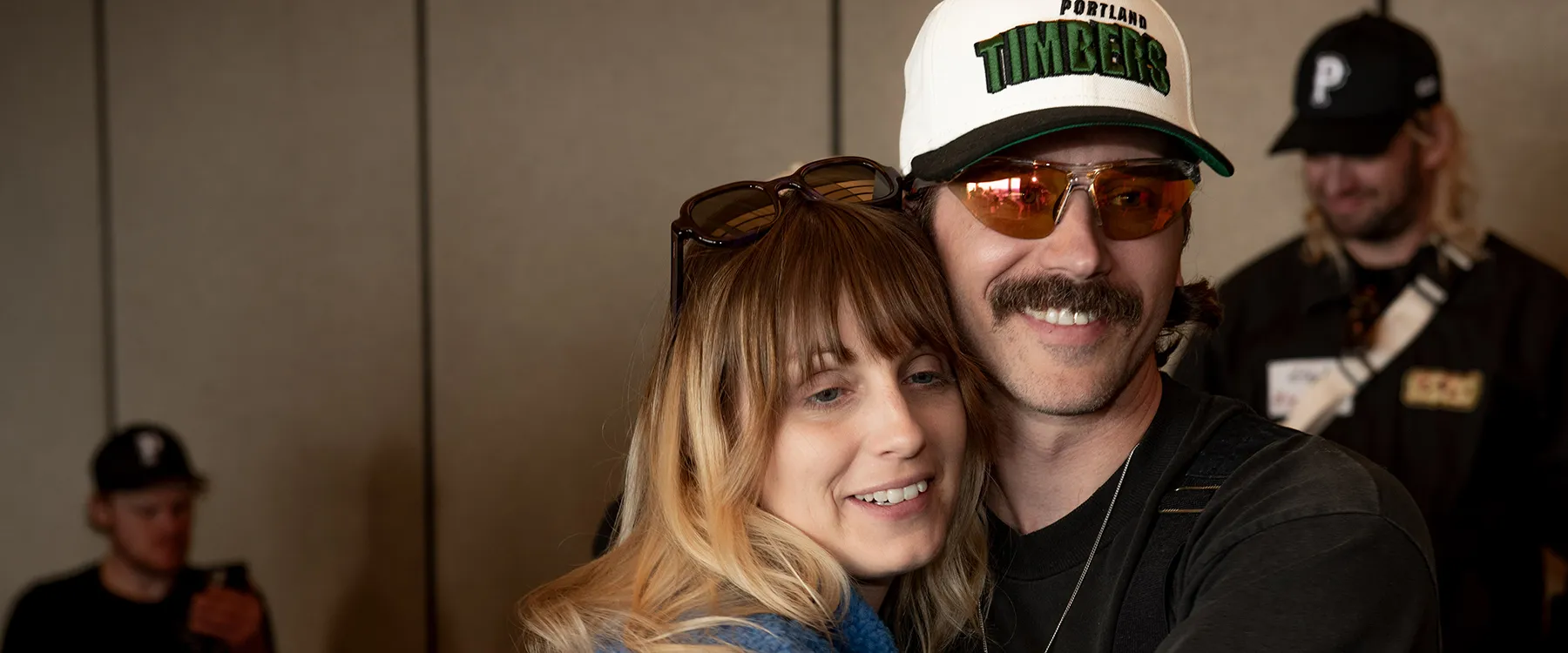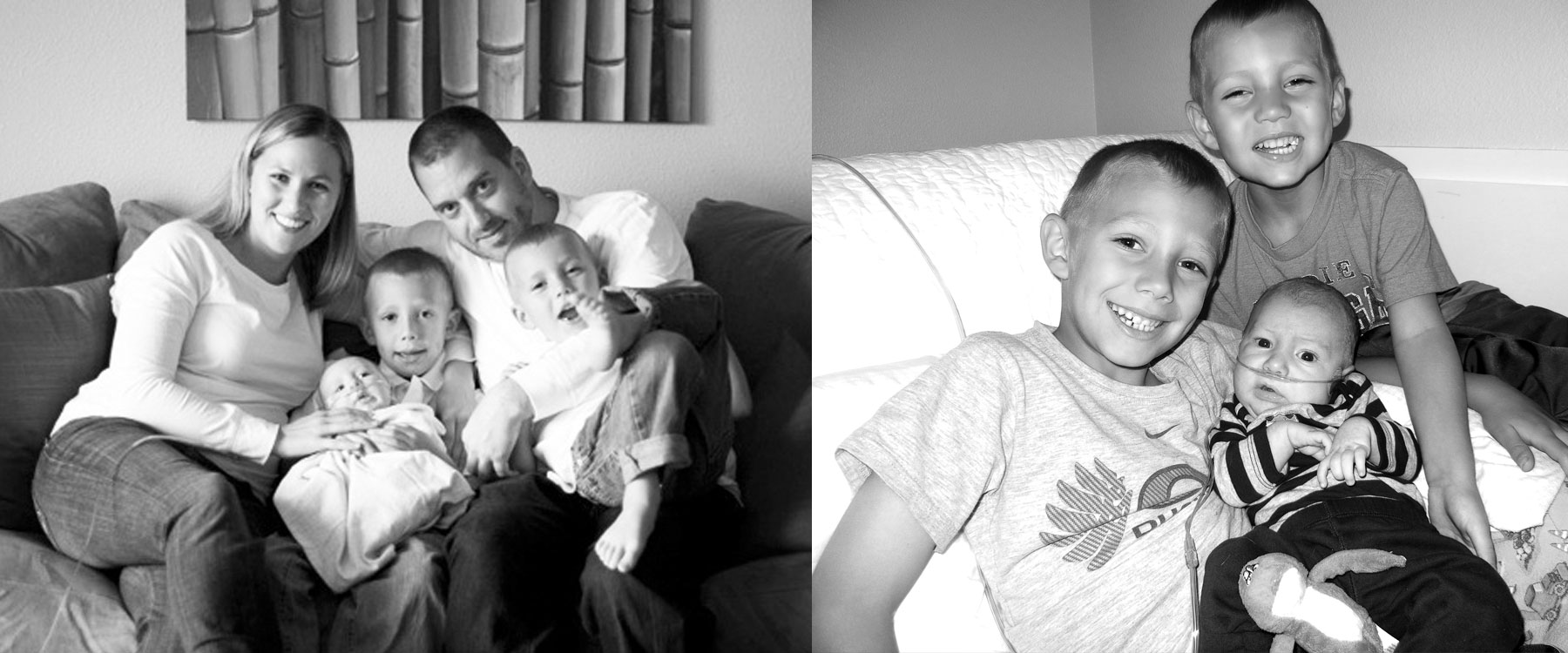Whenever they tour, Portland-based, Grammy-award-winning band Portugal. The Man, often stops by the local children’s hospital and plays music for the kids and staff. “There are such good people at these places,” said band co-founder, singer and guitarist John Gourley. “It’s special.”
But the band’s appreciation for children’s hospitals goes deeper than just giving back. For Gourley and co-lead singer Zoe Manville, it’s also personal.
The couple’s 12-year-old daughter Frances has an extremely rare genetic mutation of DHDDS, a neurodegenerative disease, and is a patient at OHSU Doernbecher Children’s Hospital.
At Doernbecher, the family has found community, connection and access to research expertise as they search for treatments and cures for Frances’ rare disease.
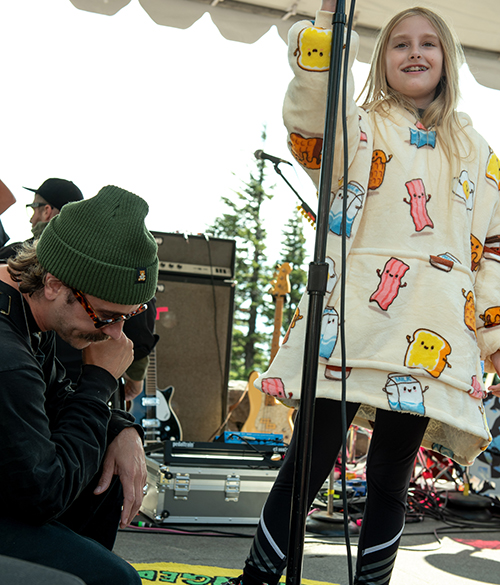
“We’ve had a really great experience there, several evaluations and the best quality of care. It’s really valuable to us and to other families in Portland and the region.”
Zoe Manville
“Doernbecher really helped us with the diagnosis and explaining what it is and what is happening. They were really key in connecting us to the people who are doing this research,” said Gourley. “When we talk to other places and ask if we should fly out, they always say, ‘Well, you have a great children’s hospital there with Doernbecher.’ Everyone’s totally comfortable with Doernbecher running point.”
Added Manville, “We’ve had a really great experience there, several evaluations and the best quality of care. It’s really valuable to us and to other families in Portland and the region.”
Despite the band’s national and international success, including the 2017 No. 1 hit, “Feel It Still,” Manville and Gourley know first-hand the loneliness of navigating the rarest of genetic diseases. Frances’ condition is one of six known cases in the world.
Together, the couple have spent countless hours researching online, reading medical literature, contacting experts from around the world and following the latest developments in genetic testing. In the past year, their daughter’s condition has been stabilized with seizure medications, and for the first time, they connected with another family who shares their experience. “You have to find your community and, if it doesn’t exist, then you create one so that you’re not completely alone,” said Manville. “It’s helped me and helped us a lot to know we can talk to another family, whereas we didn’t have that a year ago.”
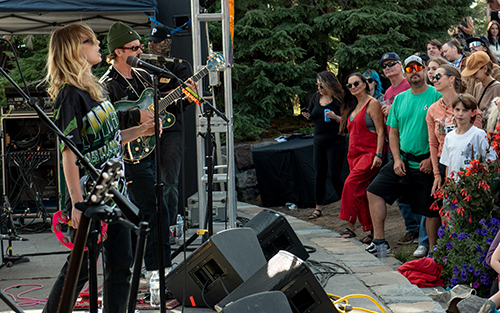
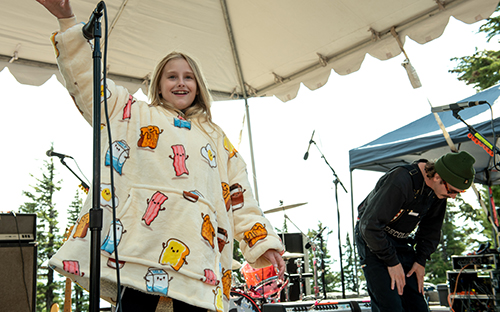

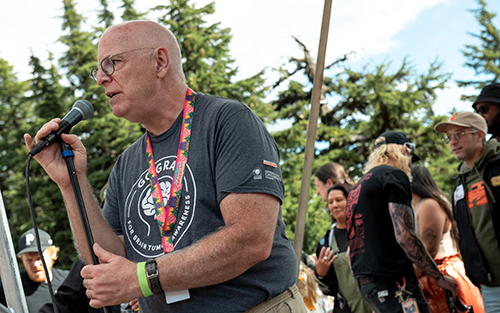
In addition to juggling their daughter’s care and a demanding musical career, Manville and Gourley also prioritize the importance of enjoying life with Frances.
“It’s good to take breaks away because focusing on the condition will just completely take over,” Manville emphasized. “You also need to be able to spend time with your kids.”
Now their focus is on helping researchers find treatments and, someday, a cure. Frances contributes to the research effort by participating in labs and biopsies at Doernbecher, as well sharing her story through a grassroots community fundraising campaign, Frances Changed My Life. Portugal. The Man also recently played a benefit concert, Timberline Daydream, to raise money for Doernbecher and create more awareness for the research needed to test, treat and cure genetic diseases.
As they have educated themselves, one of the things Manville and Gourley want other families to know is that “rare disease actually isn’t that rare,” given the 25 million to 30 million people living with rare diseases in the U.S. “Research is very, very important to get to the stage where you get a treatment option or a better understanding of the mechanisms of the disease, but it’s often on the shoulders of parents and they have to start at the bottom. I’m still learning from other families who are nine years ahead of us,” explained Manville.
She added, “We are in this moment in time where things are shifting. If we can treat other diseases that weren’t treatable 10, 20, 40 years ago, then we need to look at rare disease in the same way. Some of these things are treatable if the research is done.”
